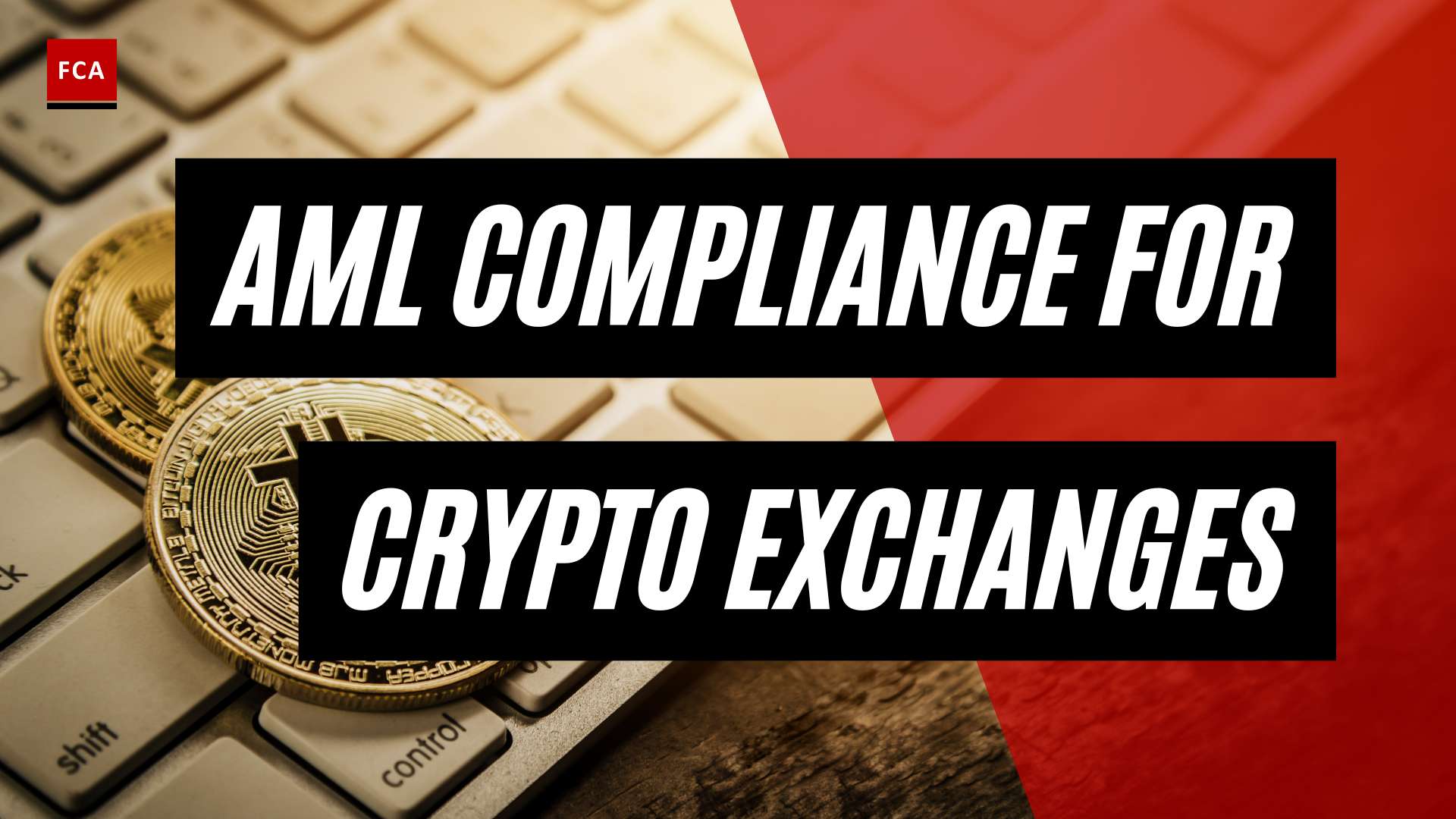AML in the Gaming Industry
In the gaming industry, the implementation of Anti-Money Laundering (AML) measures is of utmost importance to combat illicit financial activities and ensure regulatory compliance. The gaming sector, comprising both land-based and online establishments, faces unique risks and challenges in terms of money laundering. Understanding the significance of AML in the gaming industry and navigating the regulatory landscape are essential for gaming companies to maintain integrity and protect against financial crimes.
The Importance of AML in the Gaming Industry
The gaming industry, particularly online platforms, has experienced significant growth in recent years. The rise in online gambling, for example, has led to an increased need for comprehensive AML practices within the gaming sector. Between April 2020 and March 2021, online gambling in the UK alone witnessed a 30% increase, resulting in a gross gambling yield of £5.6 billion Financial Crime Academy. This growth emphasizes the importance of robust AML measures to detect and prevent money laundering activities within the gaming industry.
Money laundering poses a significant risk in the gaming sector due to factors such as the high volume of transactions, complex business structures, and the global nature of the industry Financial Crime Academy. Without effective AML measures, gaming companies may unknowingly facilitate money laundering, which can have serious legal and reputational consequences.
Regulatory Landscape for AML in Gaming
To address the risks associated with money laundering in the gaming industry, regulatory bodies have implemented stringent AML regulations. These regulations aim to prevent money laundering and terrorist financing activities within the sector.
Regulatory bodies such as the UK Gambling Commission (UKGC) and the Malta Gaming Authority (MGA) have established comprehensive AML requirements for gaming companies. Non-compliance with these regulations can result in significant fines and damage to a company’s reputation Financial Crime Academy.
Each jurisdiction may have its own specific AML regulations and guidelines for the gaming industry. For instance, in the United States, the Financial Crimes Enforcement Network (FinCEN) enforces the Bank Secrecy Act (BSA), which requires gaming companies to implement robust AML programs and report suspicious activities AML regulations in the United States. Similarly, the United Kingdom has implemented the Money Laundering Regulations, which gaming companies must adhere to in order to prevent money laundering activities AML regulations in the United Kingdom.
By complying with these regulations and implementing effective AML measures, gaming companies can mitigate the risk of money laundering, protect their reputation, and contribute to the overall integrity of the gaming industry.
In the next sections, we will explore the risks and challenges in AML for gaming, the role of AML software in the gaming industry, the implementation of AML software in gaming companies, and other AML compliance measures specific to the gaming industry.
Risks and Challenges in AML for Gaming
As the gaming industry continues to thrive, it faces unique risks and challenges in terms of anti-money laundering (AML) compliance. Understanding these risks and challenges is crucial for gaming companies to effectively implement AML measures and protect their operations. This section will explore the money laundering risks specific to the gaming industry and the challenges that gaming companies encounter in achieving AML compliance.
Money Laundering Risks in the Gaming Industry
The gaming industry is particularly vulnerable to money laundering due to various factors. According to the Financial Crime Academy, these risks arise from the large volume of transactions, complex business structures, and the global nature of the industry.
Online gaming platforms, in particular, present a unique challenge. They often involve microtransactions, creating a financial environment where money laundering activities can be disguised. The rapid pace and high volume of these transactions make it difficult to detect suspicious patterns manually. This necessitates the use of specialized AML software tailored to the gaming industry to identify and prevent illicit activities (Financial Crime Academy).
The UK Gambling Commission reported that 250 cases of money laundering were linked to the gambling sector in 2019/2020. This highlights the vulnerabilities present in the gaming industry and the urgent need for effective AML measures. Implementing robust AML software is crucial for gaming companies to detect and prevent money laundering activities, safeguard their operations, and maintain regulatory compliance.
Challenges in AML Compliance for Gaming Companies
Gaming companies face several challenges when it comes to achieving AML compliance. These challenges include:
-
Global Nature of the Industry: The gaming industry operates on a global scale, with companies conducting business across different jurisdictions. This presents complexities in navigating various AML regulations and requirements, as each jurisdiction may have its own set of rules and compliance standards.
-
Complex Transaction Patterns: The gaming industry involves a wide range of financial transactions, making it challenging to identify suspicious activities manually. AML compliance requires the ability to analyze and monitor these transactions effectively, detecting any patterns that may indicate money laundering.
-
Technological Advancements: The rapid evolution of technology introduces new challenges for AML compliance in the gaming industry. Online platforms and digital payments have expanded the scope and speed of transactions, requiring gaming companies to keep pace with technological advancements to detect and prevent money laundering activities effectively.
-
Regulatory Scrutiny: Gaming companies face increased regulatory scrutiny regarding AML compliance. Regulatory bodies are putting more emphasis on gaming companies implementing robust AML measures to prevent money laundering. Non-compliance can result in severe penalties and reputational damage.
To address these challenges, gaming companies need to invest in comprehensive AML software solutions designed specifically for the gaming industry. Such software can assist in monitoring transactions, identifying suspicious activities, conducting AML screening for customers, and ensuring compliance with AML regulations in different jurisdictions.
By proactively addressing the risks and challenges associated with AML compliance, gaming companies can protect themselves from financial crimes, maintain regulatory compliance, and contribute to a more secure and trustworthy gaming industry.
AML Software for the Gaming Industry
In the gaming industry, the use of Anti-Money Laundering (AML) software plays a crucial role in detecting and preventing money laundering activities. AML software solutions are designed to help gaming companies comply with AML regulations and mitigate the risks associated with financial crime.
Role of AML Software in Gaming
The role of AML software in the gaming industry is to provide a comprehensive system for monitoring, analyzing, and reporting financial transactions to identify potential money laundering activities. By utilizing advanced technologies and algorithms, AML software can analyze large volumes of data in real-time, enabling companies to detect suspicious patterns and flag transactions that require further investigation. Additionally, AML software helps gaming companies streamline their compliance processes and meet reporting obligations.
With the increasing complexity of financial transactions in the gaming industry, AML software is essential for efficient and effective monitoring. It enables companies to track transactions in real-time and identify any anomalies or suspicious activities that may indicate money laundering. By automating these processes, AML software reduces the burden of manual monitoring and enhances the accuracy and speed of identifying potential risks.
Key Features of AML Software for Gaming
AML software solutions for the gaming industry should include several key features to effectively combat money laundering threats and ensure regulatory compliance. These features may include:
-
Real-time transaction monitoring: AML software should provide real-time monitoring capabilities to analyze transactions as they occur. This enables immediate identification of suspicious activities and allows for timely intervention.
-
Customer due diligence (CDD): AML software should facilitate thorough customer due diligence processes, including identity verification, risk assessment, and ongoing monitoring. This helps gaming companies establish the identity and risk profile of their customers to identify any potential money laundering risks.
-
Transaction analysis and reporting: AML software should have robust analytics capabilities to analyze transactional data and generate comprehensive reports. These reports can be used for internal monitoring, regulatory compliance, and reporting suspicious activities to the relevant authorities.
-
Integration with external data sources: AML software should integrate with external data sources, such as watchlists and regulatory databases, to enhance the effectiveness of transaction monitoring and screening for known money laundering risks.
-
Alert generation and workflow management: AML software should generate alerts based on predefined rules and thresholds to flag suspicious transactions. It should also provide a workflow management system to facilitate the investigation and resolution of flagged alerts.
By utilizing AML software tailored to the gaming industry, companies can enhance their ability to detect and prevent money laundering activities. This not only helps to protect the integrity of their operations but also enables them to comply with regulatory requirements. By implementing robust AML software, gaming companies can safeguard their brand reputation, build trust with customers, partners, and regulatory authorities, and differentiate themselves in the market.
Implementing AML Software in Gaming Companies
As the gaming industry faces increasing regulatory scrutiny regarding anti-money laundering (AML) measures, implementing AML software has become essential for gaming companies. AML software plays a crucial role in identifying suspicious transactions, monitoring player behaviors, conducting enhanced due diligence on high-risk customers, and submitting accurate regulatory reports to authorities (Citi.io). Let’s explore the benefits of AML software for gaming companies and the considerations to keep in mind when choosing the right solution.
Benefits of AML Software for Gaming Companies
Implementing AML software within the gaming industry offers numerous benefits to gaming companies. These benefits include:
-
Enhanced regulatory compliance: AML software helps gaming companies meet their regulatory obligations by automating key AML processes and ensuring adherence to anti-money laundering regulations specific to the gaming industry (Citi.io).
-
Improved risk management: AML software enables gaming companies to mitigate risks associated with fraud, money laundering, and other illicit activities. By implementing AML solutions, these firms can identify and respond to suspicious transactions in real-time, minimizing the potential for financial losses and reputational damage (Citi.io).
-
Increased operational efficiency: AML software automates manual processes, such as transaction monitoring and customer due diligence, allowing gaming companies to streamline their operations. This automation reduces the need for manual intervention and frees up resources, enabling staff to focus on higher-value tasks (Citi.io).
-
Protection of reputation: Implementing AML software not only enhances regulatory compliance but also helps protect the reputation and integrity of the gaming company. By demonstrating a commitment to preventing financial crimes, gaming companies foster trust among customers, stakeholders, and regulatory authorities (Citi.io).
Considerations for Choosing AML Software
When selecting AML software for gaming companies, several considerations should be taken into account. These considerations include:
-
Industry-specific features: Look for AML software that offers industry-specific features tailored to the gaming industry. This includes functionalities such as AML screening for gaming customers, AML controls for online gaming transactions, and AML compliance for online gaming platforms.
-
Robustness and sophistication: The AML software must be robust and sophisticated to keep pace with the evolving techniques used by money launderers, ensuring that gaming companies stay ahead in the fight against financial crimes (Citi.io). Look for advanced features such as machine learning, artificial intelligence, and pattern recognition capabilities.
-
Integration capabilities: Consider the compatibility and integration capabilities of the AML software with existing systems and databases within your gaming company. Seamless integration can enhance operational efficiency and reduce disruptions during the implementation process.
-
Scalability: Choose AML software that can scale with your gaming company’s growth and evolving needs. The software should be capable of handling increasing transaction volumes and expanding compliance requirements as your business expands.
-
User-friendliness: Opt for AML software that is intuitive and user-friendly, ensuring that your staff can efficiently navigate and utilize the system. Training and support resources provided by the software vendor are also important considerations to facilitate adoption and maximize the benefits of the software.
By carefully considering these factors, gaming companies can select the most suitable AML software that aligns with their specific compliance needs and operational requirements. Implementing robust and sophisticated AML software is a crucial step in safeguarding the gaming industry from financial crimes and maintaining regulatory compliance.
AML Compliance Measures for Gaming
To combat money laundering and ensure regulatory compliance in the gaming industry, it is crucial for gaming companies to implement robust anti-money laundering (AML) measures. Two essential components of AML compliance in gaming are Know Your Customer (KYC) and transaction monitoring and reporting.
Know Your Customer (KYC) in the Gaming Industry
KYC procedures are a fundamental aspect of AML compliance for gaming companies. KYC guidelines require gaming operators to verify the identity and background of their customers to prevent fraud, money laundering, and other illicit activities. By implementing effective KYC processes, gaming companies can establish the identity of their customers and assess their risk level.
AML compliance software plays a vital role in streamlining KYC procedures for gaming operators. This software automates identity verification processes and risk assessments, enabling gaming companies to conduct due diligence more effectively and efficiently. By leveraging AML software, gaming companies can ensure compliance with regulations while enhancing the overall customer experience by reducing manual interventions and delays (Financial Crime Academy).
Transaction Monitoring and Reporting
Transaction monitoring and reporting are crucial aspects of AML compliance in the gaming industry. Gaming companies need to implement robust systems that can detect and report suspicious transactions and activities effectively. With the high volume of transactions occurring in real-time within the gaming sector, manual monitoring becomes impractical and error-prone.
AML compliance software provides gaming companies with the tools and solutions necessary to monitor transactions accurately and efficiently. These software solutions include features such as transaction monitoring, case management, risk assessment, and suspicious activity reporting. By utilizing AML software, gaming companies can analyze transactions in real-time, detect patterns of suspicious behavior, and promptly report any suspicious activities to the relevant authorities. This helps ensure compliance with AML regulations and prevents money laundering and illicit activities within the gaming industry (Unit21).
Advanced AML software solutions for the gaming industry leverage machine learning and artificial intelligence algorithms to continuously improve detection capabilities and adapt to evolving money laundering techniques. This adaptive technology is essential in staying ahead of sophisticated financial criminals and minimizing risks for gaming companies (Financial Crime Academy).
By implementing effective KYC procedures and utilizing robust transaction monitoring and reporting systems, gaming companies can strengthen their AML compliance measures. This not only ensures compliance with regulations but also helps protect the gaming industry from money laundering and other financial crimes.
AML Regulations in Different Jurisdictions
Anti-Money Laundering (AML) regulations play a crucial role in combating financial crimes in the gaming industry. Different jurisdictions have established specific regulations to ensure compliance and prevent money laundering and terrorist financing. In this section, we will explore the AML regulations in the United States and the United Kingdom.
AML Regulations in the United States
In the United States (US), AML regulations for the gaming industry vary based on the legality of gambling within each state. The Financial Crimes Enforcement Network (FinCEN) has the authority to review gambling businesses for compliance with the Bank Secrecy Act (BSA) (Sanction Scanner).
Under the BSA, casinos and other gambling establishments are required to implement comprehensive AML programs. These programs must include policies, procedures, and internal controls to detect and report suspicious activities. If a significant BSA violation is detected, an investigation is initiated, and penalties may be imposed on the casino. FinCEN and the Internal Revenue Service (IRS) work together to detect violations and take appropriate legal action.
To ensure compliance, gaming companies in the US must conduct robust customer due diligence (CDD) measures, implement effective transaction monitoring systems, and maintain records of various financial transactions. Regular audits are also conducted to assess the effectiveness of AML controls and procedures in place.
AML Regulations in the United Kingdom
In the United Kingdom (UK), the gambling industry is regulated by the UK Gambling Commission (UKGC) under the Money Laundering, Terrorist Financing, and Transfer of Funds (Information on the Payer) Regulations 2017 (MLR 2017) (Sanction Scanner). Gaming and gambling companies operating within the UK are required to comply with the MLR 2017.
Under these regulations, gaming companies must conduct risk assessments to identify and mitigate money laundering risks. They are also required to perform thorough customer due diligence (CDD) on their customers to verify their identities and assess the risks associated with their gambling activities.
Furthermore, gaming companies in the UK must appoint a nominated officer (NO) who is responsible for overseeing AML compliance within the organization. This individual ensures that the company has appropriate AML controls, policies, and procedures in place to prevent money laundering and terrorist financing.
To meet their AML obligations, gaming companies must also provide ongoing training to their employees, establish internal reporting mechanisms for suspicious activities, and maintain comprehensive records of customer transactions.
By adhering to these AML regulations, gaming companies in the United States and the United Kingdom contribute to the overall efforts in combating money laundering and protecting the integrity of the financial system. It is essential for gaming companies to stay updated on the evolving regulatory landscape and ensure continuous compliance with the AML requirements specific to their jurisdictions.
Future Trends in AML for the Gaming Industry
As the gaming industry continues to grow and evolve, so do the techniques used by money launderers. To stay ahead in the fight against financial crime, the anti-money laundering (AML) sector must adapt and advance. In this section, we will explore two key future trends in AML for the gaming industry: evolving techniques in money laundering and advancements in AML technology for gaming.
Evolving Techniques in Money Laundering
Money launderers are constantly finding new ways to exploit vulnerabilities in the gaming industry. The large volume of transactions, complex business structures, and global nature of the industry make it an attractive target for illicit financial activities. According to Citi.io, the gaming industry is estimated to lose $6.8 billion yearly due to money laundering activities.
To combat this ever-present threat, AML professionals must remain vigilant and adapt their strategies. Money launderers may employ techniques such as smurfing, where transactions are broken down into smaller amounts to avoid detection, or layering, where multiple transactions are conducted to obscure the origin of funds. AML software for the gaming industry must be capable of identifying these evolving techniques and patterns of suspicious behavior.
Advancements in technology, such as artificial intelligence (AI) and machine learning, play a crucial role in detecting and mitigating these emerging money laundering techniques. By analyzing vast amounts of data in real-time, AML software can identify unusual patterns or anomalies that may indicate potential money laundering activities. This proactive approach helps gaming companies detect and prevent financial crimes before they occur.
Advancements in AML Technology for Gaming
To effectively combat money laundering in the gaming industry, AML software must keep pace with the evolving landscape. Advanced AML technology specifically tailored for the gaming sector is essential. According to Financial Crime Academy, AML software in the gaming sector utilizes technologies like AI and machine learning to analyze data in real-time, enabling the detection of unusual patterns or anomalies.
By leveraging these advancements, AML software can provide gaming companies with a comprehensive suite of tools and solutions. These may include real-time transaction monitoring, customer due diligence (CDD), ongoing monitoring, and sanctions and politically exposed persons (PEP) screening. With these capabilities, gaming companies can effectively manage money laundering risks, comply with regulatory requirements, and protect their reputation and integrity.
The adoption of AML software is part of a broader AML compliance framework and should be executed as part of a risk-based approach tailored to the specific requirements of gaming companies. By implementing AML software solutions, gaming companies can accurately and efficiently detect and report suspicious activity, minimize false positives, and ensure regulatory compliance.
In conclusion, as the gaming industry continues to flourish, AML professionals must remain vigilant against evolving money laundering techniques. By embracing advancements in AML technology, such as AI and machine learning, gaming companies can effectively address the ever-changing landscape of financial crime. A robust and sophisticated AML software solution is crucial to protect the integrity of the gaming industry and safeguard against illicit financial activities.








